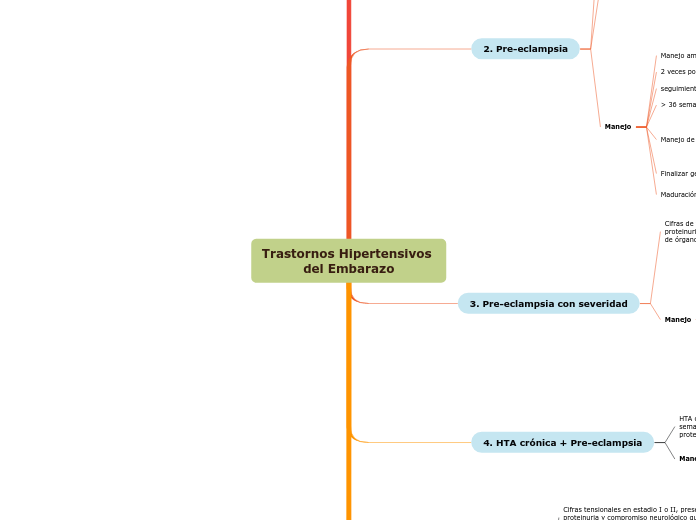av Manuela Franco 4 år siden
348
Trastornos Hipertensivos del Embarazo

av Manuela Franco 4 år siden
348

Mer som dette

To name your story, you have to think about the overall message and what you want your audience to understand from the story. Also, make it relevant and easy to remember.
Labetalol
Fenitoina
en pacientes con falla renal porque esta CI el sulfato de ng
25-50 mg/kg y se deja luego a 5 mg/kg/h según evolución de la paciente
Sulfato de Mg
se debe poner sonda SIEMPRE
6 g con dosis de mantenimiento de 1-2 g/h por 24 horas
The ending of a story is essential. We all know that if the ending is weak, what happened before loses its importance. So make it unpredictable, but fair. A resolved ending answers all the questions and ties up any loose threads from the plot.
This is the closure section of the story.
See examples of possible outcomes below:
Try answering these questions in order for you to come up with a closure:
- Have all problems been solved?
- Is it clear what happens with all your characters in the story?
- Has the challenged transformed your main character?
- How do the characters feel in the end?
cifras tensionales en estadio 2, con síntomas de vasoespasmo y monitoria fetal insatisfactoria
Labetalol 20 mg IV, esperar 10 min luego 40 mg IV esperar 10 min y 80 mg IV según la rta de la paciente
se debe monitorizar a la mama y al bebe
>160/110 pero paciente asintomatica, sin vasoespasmo, buen estado fetal
Nifedipino esquema de crisis: 10 mg c/20 min y luego 10 mg c/6 horas
Sulfato de Mg 4 gr en bolo y continuar en infusion de 1 gr/h
Try answering these questions to come up with a closure:
- Have all the problems been solved?
- Is there a clear picture of what happens with each character in the story?
- Has the challenge transformed your main character?
- How do the characters feel in the end?
This is the moment when the main character surpasses the last obstacle and finally faces their greatest challenge.
The climax usually follows one of these patterns:
Type in your answer.
The middle of the story is where you add layers of complications that will lead to the end. Reveal more about the character's journey. Did their personality go through changes? How did they overcome the challenges? And as you build up the story’s central conflict, make it more personal to that character. Also, from the middle act, you have to lead into the final act.
Betametasona 12 mg IM, 2 dosis separadas por 24 h
Clonidina 150 o 300 mg VO cada 6 h
Subtopic
Cuadro hematico
Funcion renal
Funcion hepática
Proteinuria aislada: >30 mg
relación P/C >0.3
Proteina en 24 horas: > 300 mg
There wouldn't be any tension and excitement in your story if there weren't any obstacles in your character's way.
In the beginning of the story (or the exposition), you will need to introduce the setting and characters. You might also want to introduce the main conflict. This part of the story is important because it gives the reader necessary background information and maybe even a first insight into a character’s personality.
Metoprolol 50 mg VO cada 8-12 h
Nifedipino 30 mg VO cada 8-12 h
Monitoria Fetal
Eco obstetrica
Doppler Fetoplacentario
Characters are essential to a good story. Usually, the protagonist(s) is/are the most affected by the plot. Introduce a character by focusing on their actions, interests, and occupation, as the physical appearance doesn't make a difference in most cases.